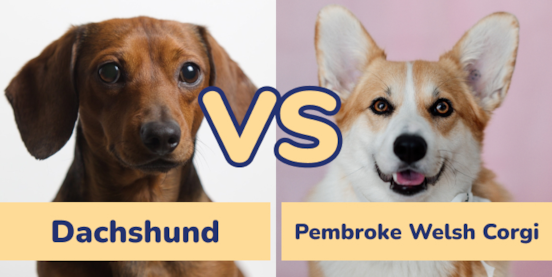Pembroke Welsh Corgi Breed Info


The Pembroke Welsh Corgi is an intelligent and affectionate breed, known for its endearing personality and strong herding instincts. With their adorable appearance, featuring a compact body, sturdy legs, and distinct foxy faces, it's no wonder they've captured the hearts of dog lovers around the world. As an active and energetic breed, Pembroke Welsh Corgis thrive when provided with ample opportunities for exercise, mental stimulation, and, of course, lots of love and attention.
These loyal and hardworking canines were initially bred as herding dogs in Wales, where they excelled at keeping livestock in line. Their remarkable agility and keen sense of direction make them perfect for this task, and today, they continue to exhibit their herding instinct when given the chance. In addition to their work on the farm, Pembroke Welsh Corgis also make excellent family pets, as their friendly and affectionate nature allows them to bond quickly with their human companions.
To ensure a happy and well-adjusted Pembroke Welsh Corgi, it's essential to provide them with proper training, socialization, and regular exercise. With consistent and positive reinforcement, this intelligent breed can quickly master basic obedience commands and even learn advanced tricks. Socialization helps to curb any potential over-protectiveness, allowing your Corgi to develop into a well-rounded, confident, and friendly companion. So, if you're looking for an energetic, loving, and devoted canine friend, the Pembroke Welsh Corgi may just be the perfect addition to your family.
Characteristics
- Intelligent and trainable: Pembroke Welsh Corgis are known for their intelligence, making them highly trainable and quick to learn new commands. With consistent, positive reinforcement-based training, these dogs can master both basic obedience skills and advanced tricks, showcasing their eagerness to please their human companions.
- Affectionate and loyal: This breed is renowned for its affectionate and loyal nature, forming strong bonds with their families. Their unwavering devotion makes them excellent companions for those seeking a loving, attentive, and protective furry friend.
- Active and energetic: Pembroke Welsh Corgis are active dogs that require regular exercise to maintain their health and happiness. Daily walks, play sessions, and engaging activities like agility training will help keep their minds and bodies in tip-top shape, while also strengthening the bond between dog and owner.
- Herding instinct: Bred as herding dogs, Corgis possess a natural herding instinct that can be seen in their interaction with other animals and even their human family members. This instinct makes them well-suited for participation in herding trials and other dog sports, providing an excellent outlet for their energy and drive.
- Socialization is key: To ensure a well-rounded and confident Corgi, early socialization with various people, animals, and environments is crucial. This helps prevent over-protectiveness and allows the dog to develop into a friendly, adaptable companion that can handle new situations with ease.
- Moderate grooming needs: Pembroke Welsh Corgis have a double coat that requires regular grooming to keep it clean and healthy. While they do shed, a weekly brushing routine will help minimize loose hair and keep their coat looking its best.
- Adaptable to different living situations: Although Pembroke Welsh Corgis are energetic dogs, they can adapt well to various living environments, including both city and country life. As long as they receive the necessary exercise, mental stimulation, and love, they can thrive in an apartment, suburban home, or on a farm.

Appearance
The appearance of the Pembroke Welsh Corgi is unmistakable, with its compact and sturdy build, foxy expression, and charming demeanor. Their unique physique and attractive features have endeared them to dog lovers across the globe, making them a recognizable and beloved breed.
One of the most distinguishing characteristics of the Pembroke Welsh Corgi is its short, strong legs that support a long, low-set body. Despite their small stature, Corgis are remarkably agile and athletic, well-suited for their herding duties. Their overall build conveys a sense of strength and balance, with a deep chest and well-sprung ribs, ensuring they have the endurance needed for an active lifestyle.
The head of the Pembroke Welsh Corgi is another striking feature, with its fox-like expression, alert ears, and intelligent eyes. The breed's skull is wide and flat between the ears, tapering gradually to a moderately pointed muzzle. Their eyes are medium-sized, oval in shape, and dark in color, giving them an attentive and friendly gaze. The ears are pricked and slightly rounded at the tips, adding to their characteristic foxy appearance.
The coat of the Pembroke Welsh Corgi is double-layered, with a soft, dense undercoat and a coarser, water-resistant outer coat. This combination provides them with insulation against the elements and protection from rough terrain. The breed's coat comes in a variety of colors, including red, sable, fawn, and black and tan, often with white markings on the face, chest, legs, and neck.
The Pembroke Welsh Corgi is distinguished from its close cousin, the Cardigan Welsh Corgi, by its shorter tail, which is either naturally bobbed or docked to a short length. This feature gives the Pembroke a unique silhouette and sets it apart from other breeds.
Temperament
The temperament of the Pembroke Welsh Corgi is a delightful blend of intelligence, loyalty, and playfulness, making them a popular choice for families, singles, and seniors alike. Known for their affectionate and sociable nature, Corgis form strong bonds with their human companions, thriving on attention and interaction.
These highly intelligent dogs are eager to please, which makes them highly trainable and responsive to commands. However, their intelligence also means they require mental stimulation to prevent boredom and the development of undesirable behaviors. Puzzle toys, interactive games, and obedience training can all help keep your Corgi's mind engaged and active.
Pembroke Welsh Corgis possess a strong herding instinct, which can sometimes manifest as nipping at the heels of family members or other pets. While this behavior is usually harmless, early training and redirection can help minimize the expression of their herding drive in inappropriate situations.
Despite their small size, Corgis are known to be excellent watchdogs, thanks to their alertness and protective nature. They are not overly aggressive, but they will not hesitate to bark and alert their family to any perceived threats. Proper socialization from an early age can help ensure that your Corgi's protective instincts are well-balanced and appropriate.
Corgis are generally good with children, displaying patience and affection towards younger family members. However, as with any breed, supervision and proper interaction are essential to fostering a positive relationship between dogs and children.
When it comes to other pets, Pembroke Welsh Corgis can get along well with other animals, particularly if they are socialized early and introduced gradually. They may, however, show some initial bossiness or assertiveness due to their herding background, but with time and proper guidance, they can learn to coexist peacefully with other household pets.
Insights

Dachshund vs Pembroke Welsh Corgi Comparison
When you think of charming, short-legged dogs with a ton of personality, two breeds likely come to mind: the Dachshund and the Pembroke Welsh Corgi. These two breeds, each with its unique history and characteristics, have captured the hearts of many around the world. While they both share a low stance and are brimming with charisma, they're distinct in many ways. In this article, we'll delve deep into the world of the playful "wiener dog" and the royal Corgi, comparing and highlighting their remarkable...
Care
Grooming
The grooming needs of the Pembroke Welsh Corgi are moderate, requiring regular attention to maintain a healthy and well-kept appearance. Although they may not need extensive grooming like some other breeds, it is essential to establish a consistent grooming routine to ensure their coat remains clean, manageable, and free of mats or tangles.
One of the primary aspects of grooming a Pembroke Welsh Corgi is regular brushing. Their double coat is prone to shedding, particularly during seasonal changes when they lose their undercoat. To minimize shedding and keep their coat in optimal condition, it is recommended to brush your Corgi at least once a week using a slicker brush, pin brush, or a comb designed for double-coated breeds. During periods of heavier shedding, more frequent brushing may be necessary to remove loose hair and prevent it from accumulating in your home.
Bathing your Pembroke Welsh Corgi should be done as needed, depending on their activity level and exposure to dirt or debris. Generally, a bath every 4-6 weeks is sufficient to keep their coat clean and fresh. When bathing, use a gentle dog shampoo formulated for double-coated breeds to help maintain the natural oils in their coat and avoid over-drying the skin.
In addition to coat care, regular attention should be given to other aspects of grooming, such as nail trimming, ear cleaning, and dental care. Trim your Corgi's nails every 3-4 weeks or as needed to prevent overgrowth and discomfort. Check their ears weekly for signs of infection, debris, or wax buildup, and clean them gently with a cotton ball and dog-specific ear cleaner. Maintaining good dental hygiene is also essential, so brush your Corgi's teeth regularly with a dog-friendly toothpaste and toothbrush to reduce the risk of dental issues.
Exercise Needs
The exercise needs of the Pembroke Welsh Corgi are relatively high, owing to their energetic and active nature. Despite their small size, these intelligent dogs require regular physical and mental stimulation to maintain their overall health, happiness, and well-being. Meeting their exercise needs not only keeps them fit but also helps prevent obesity, boredom, and the development of undesirable behaviors.
A daily walk of at least 30-45 minutes is essential for Pembroke Welsh Corgis, providing them with an opportunity to stretch their legs and burn off excess energy. In addition to walks, engaging in play sessions in a securely fenced yard or dog park allows them to run, jump, and explore at their leisure. Toys such as balls or frisbees can provide added excitement and encourage your Corgi to stay active.
Corgis are intelligent dogs that excel at various dog sports, such as agility, obedience, and rally. Participating in these activities not only provides them with a physical challenge but also stimulates their minds and reinforces the bond between dog and owner. Their natural herding instincts make them well-suited for herding trials and other similar events, offering a unique way for them to showcase their innate abilities.
Mental stimulation is equally important for Pembroke Welsh Corgis, as their keen minds require regular engagement to stay sharp. Providing them with puzzle toys, interactive games, or training sessions can help keep them mentally challenged and reduce the likelihood of boredom and destructive behaviors.
Health
The health of the Pembroke Welsh Corgi is generally robust, as they are a sturdy and resilient breed. However, like all dogs, they can be predisposed to certain health conditions like allergies, ear infections, or dental issues. By being aware of these potential issues and taking proactive steps to maintain your Corgi's well-being, you can help ensure a long, happy, and healthy life for your furry companion.
Routine veterinary care, a balanced diet, and regular exercise are essential to maintaining the overall health of your Pembroke Welsh Corgi. Scheduling annual check-ups, staying up to date on vaccinations, and monitoring for any signs of illness or discomfort will help ensure that your Corgi remains in optimal health throughout their life.
Lifespan
The lifespan of the Pembroke Welsh Corgi is generally between 12 and 14 years, reflecting their overall robust health and vitality. With proper care, regular veterinary check-ups, and a balanced diet, some Corgis have been known to live even longer, enjoying their golden years in good health and happiness.
There have been instances where Pembroke Welsh Corgis have surpassed their typical lifespan, living well into their late teens. One notable example is a Corgi named Sutter, a beloved pet of the California governor's family, who lived to be 18 years old. These exceptional cases highlight the potential longevity of the breed when provided with the right care and attention.
To increase the likelihood of your Pembroke Welsh Corgi enjoying a long, healthy life, it is essential to maintain their overall well-being through regular exercise, mental stimulation, and grooming. Additionally, staying informed about potential breed-specific health issues and taking proactive measures to mitigate these risks can contribute to a longer and more fulfilling life for your Corgi companion.
Training
The training of the Pembroke Welsh Corgi is a rewarding and enjoyable experience, thanks to their intelligence, eagerness to please, and strong work ethic. These attributes make them highly trainable and responsive to commands, although their independent nature may occasionally present challenges. With patience, consistency, and positive reinforcement, you can successfully train your Corgi to be a well-mannered and obedient companion.
Early socialization is a crucial aspect of training for Pembroke Welsh Corgis, as it helps them develop into well-rounded, confident, and sociable dogs. Introducing your Corgi to a variety of people, environments, and other animals from a young age will help them learn to adapt to new situations and prevent the development of fear or aggression.
Obedience training should begin as soon as you bring your Corgi home, starting with basic commands such as "sit," "stay," and "come." Using positive reinforcement methods, such as treats, praise, or play, will help your Corgi associate training with positive experiences and encourage them to learn more quickly. Consistency is key when training your Corgi, so make sure to reinforce commands and expectations regularly to establish good habits.
Given their herding background, Pembroke Welsh Corgis may exhibit nipping behaviors, particularly when excited or attempting to control movement. Addressing this behavior early on through redirection, training, and providing alternative outlets for their herding instincts can help ensure that it does not become a problem later in life.
Corgis excel in various dog sports and activities, such as agility, rally, and herding trials, which can provide additional training opportunities and mental stimulation. These activities not only allow your Corgi to showcase their innate talents but also strengthen the bond between you and your canine companion.
History
The history of the Pembroke Welsh Corgi dates back over a thousand years, with its origins deeply rooted in the pastoral landscapes of Wales. This ancient breed is believed to have descended from the Spitz-type dogs brought to the region by Flemish weavers in the 10th or 11th century. Over time, these dogs were selectively bred with local herding dogs to create the lovable, intelligent, and hardworking Pembroke Welsh Corgi we know today.
As a herding breed, the Pembroke Welsh Corgi was developed to assist farmers in managing livestock, particularly cattle. Their compact size, agility, and fearless nature made them perfect for nipping at the heels of larger animals and driving them in the desired direction. This herding instinct remains strong in the breed today, with many Corgis still working on farms and participating in herding trials and competitions.
The Pembroke Welsh Corgi gained popularity outside of Wales thanks to their association with the British royal family. In 1933, King George VI introduced the first Corgi, named Dookie, to the royal household. Since then, the breed has become a favorite of Queen Elizabeth II, who has owned over 30 Corgis during her reign. This royal connection helped boost the breed's popularity worldwide, leading to an increased demand for these affectionate and intelligent dogs as family pets.
Despite their long history and unwavering popularity, Pembroke Welsh Corgis were not officially recognized as a distinct breed until the early 20th century. In 1925, the first breed standard was established, and in 1934, the American Kennel Club (AKC) granted the breed full recognition. Today, the Pembroke Welsh Corgi continues to be a popular choice for dog enthusiasts, known for its versatility, adaptability, and endearing personality.

